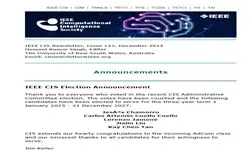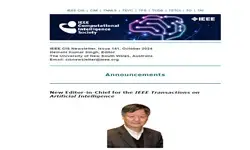-
Members: FreeCIS
IEEE Members: Free
Non-members: FreeLength: 00:46:02
23 Jul 2020
Fuzzy systems perform approximate reasoning using imprecisely described if-then rules. Fuzzy rule interpolation (FRI) facilitates such reasoning when carried out on incomplete or sparse rule bases, where certain observations may not match any existing rules. Traditional fuzzy rule-based inference requires at least partial direct pattern matching between observations and the given rules; FRI, instead, reasons through manipulation of rules that bear similarity with an unmatched observation.
FRI techniques have been extensively investigated for decades, resulting in a wide range of approaches with successful applications. This talk will focus on a popular group of techniques called Transformation-based FRI (T-FRI), which rely on exploiting linear transformations of automatically selected rules nearest to an unmatched observation. This talk will first provide a review of the underlying, seminal T-FRI approach, followed by a brief introduction to a family of methods, including: adaptive T-FRI, backward T-FRI, higher-order T-FRI, dynamic T-FRI and weighted T-FRI, each of which addresses some of the critical limitations of the original. Then, the talk will present real-world applications that solve challenging problems like network security and medical diagnosis. Finally, the talk will conclude with several initial sketches for further development in this important area.
FRI techniques have been extensively investigated for decades, resulting in a wide range of approaches with successful applications. This talk will focus on a popular group of techniques called Transformation-based FRI (T-FRI), which rely on exploiting linear transformations of automatically selected rules nearest to an unmatched observation. This talk will first provide a review of the underlying, seminal T-FRI approach, followed by a brief introduction to a family of methods, including: adaptive T-FRI, backward T-FRI, higher-order T-FRI, dynamic T-FRI and weighted T-FRI, each of which addresses some of the critical limitations of the original. Then, the talk will present real-world applications that solve challenging problems like network security and medical diagnosis. Finally, the talk will conclude with several initial sketches for further development in this important area.


